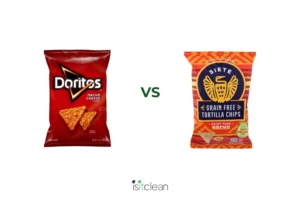
Acesulfame potassium is a zero-calorie sweetener that is added to many sugar-free…



Xanthan gum is an additive and emulsifier that is used as a thickening agent derived from sugar fermented with a bacteria called Xanthomonas campestris. It is commonly used in baked goods, soups, dressings, sauces, ice creams, and gluten free products, among other products. The two biggest producers of Xanthan Gum in the United States are Merck and Pfizer.

Xanthan gum is a synthetic ingredient, meaning it was made in a lab and does not naturally occur in food. It is generally agreed upon to be safe to consume in small amounts, but manufacturers may use common allergens like wheat, corn, soy, dairy to produce the Xanthan gum. These sources may also have GMOs and are not organic. In a study on rats, xanthan gum showed increases in inflammation, but another study using mice cells showed that xanthan gum may be useful in the treatment of inflammatory disorders.
Health is like a bank account, certain ingredients make a deposit into your health bank, meaning they add to
your health. Certain ingredients withdraw from your health bank. We want health promoting ingredients in our diet. To keep things simple, we rate ingredients on a green, yellow, red scale:

It is naturally occurring in food and has no harmful effects on the body. It is real food. It is health promoting.

It goes into one or more of the below categories

It is known to have a harmful effect on the body (ex. All food colorings, Natural Flavors, MSG, Potassium bromate, aspartame, artificial flavors)



The Food Showdown: Popcorners flavors
Ingredient Rating: Canola oil – is it bad for you?
Clean Consuming: Nourishment for your

We have accomplished so much in just 1 year since our launch in March of 2023! We now have 10,000

The Nacho Chip Food Showdown, is Tapioca Starch safe in food? and a must-see documentary on America’s food system.
Stay in the know with the latest ratings, articles, and our newsletter, The Dirt.